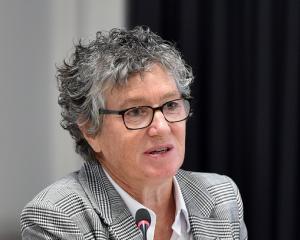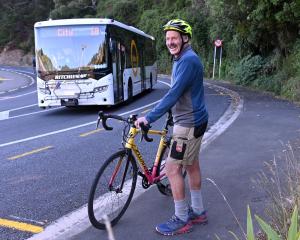
Additionally, council staff said significant growth at the ministry had limited the pool of prospective employees and hindered the council’s ability to hire suitable people to get the work done.
Councillors approved a seventh progress report to Environment Minister David Parker last week, in response to a 2019 investigation that found council plans to protect freshwater were not fit for purpose.
In its latest progress report, the council thanked Mr Parker for a recent six-month extension for the council’s land and water plan.
Cr Andrew Noone, who served as council chairman last term, however, urged councillors to remember "although there’s a bouquet for the minister and the ministry ... there’s also a brickbat".
Two years ago, the council tried to expedite the forerunner to the land and water plan - its regional policy statement (RPS) - through a designated freshwater hearings panel, but the move was challenged by Forest & Bird and then struck down in the High Court last year.
Now, hearings for the "non-freshwater" parts of the RPS are under way, but the freshwater hearing has not yet started.
When Mr Parker granted the council its six-month extension, he said he accepted the new RPS process would take longer than originally envisioned.
The council was the first to navigate using the new process and the extension would allow more time for the RPS hearings to advance before the land and water plan’s notification.
Cr Noone said the council’s belief that its RPS could be expedited was because of poor advice from the ministry.
"I think if we reflect on that process that we triggered for the RPS when we were convinced that it was a ‘freshwater planning instrument’, that advice was poor," Cr Noone said.
"I’m not blaming anyone in this room, but clearly MfE encouraged us to go down that track.
"The legislation was probably poorly worded.
"Our ratepayers and this organisation has had to absorb considerable cost because of that situation, so I suppose my message here is around thinking ‘what have we learned?’.
"And I think the key thing for me is, ‘let’s not get so focused on the timeframe, let’s do the job correctly, let’s make sure we’ve got sound advice when we make decisions and we trigger a notification process’."
Policy and science general manager Anita Dawe said if the council had two or three more freshwater analysts it would "be in a far better position" than it was now.
Answering questions from interim chief executive Pim Borren, she said the ministry’s recruitment of hundreds of staff as it grew over recent years "absolutely" limited the council’s ability to employ people.
While the council's pay was on par with other regional councils, MfE did "pay a little bit more", she said.
"And they have some other policies that are reasonably attractive to people.
"They have taken some staff from every council around the country, so it has had an impact."
A ministry spokeswoman declined to respond to Cr Noone’s comments yesterday.
She did say the ministry had grown from 361 staff in 2017 to 1,031 staff by late last year.
As of February 2023, the ministry employed 40 staff based throughout Otago and Southland, she said.
"The Ministry recognises the ongoing high demand for qualified planners and other resource management professionals across the wider sector, particularly through the period of the resource management reform.
"However, growth at MfE has stabilised, and staffing numbers are forecast to decrease in the coming years as reforms continue to be implemented, with capability moving into supporting regions on the implementation of these reforms."












